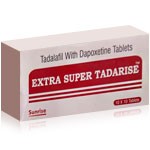Taking Control of Premature Ejaculation


Premature ejaculation (PE) is one of the most common sexual health concerns among men, affecting millions worldwide across all age groups. Although it is often not openly discussed due to embarrassment or stigma, this condition can have a profound effect on self-esteem, intimate relationships, and overall quality of life. Understanding why it happens, what can trigger sudden changes, and how to manage or treat it is the first step toward regaining control and confidence.
Understanding Premature Ejaculation
Premature ejaculation is typically defined as ejaculation that happens sooner than desired, either before or shortly after penetration, causing distress to one or both partners. Some medical guidelines classify it as ejaculation within one minute of vaginal penetration, while others focus more on the distress and lack of control rather than strict timing. What unites these definitions is that the man feels unable to delay ejaculation, leading to frustration and a negative impact on sexual satisfaction.
It is important to note that PE is not unusual. Studies suggest that up to 30% of men experience it at some point in their lives. For some, it is a lifelong issue beginning with their first sexual experiences. For others, it appears suddenly later in life, often linked to physical or psychological factors.
Main Causes of Premature Ejaculation
There is rarely a single cause of PE; rather, it is often the result of an interplay between biological, psychological, and interpersonal factors.
Biological influences may include abnormal levels of neurotransmitters such as serotonin, genetic predispositions, or heightened penile sensitivity. Certain medical conditions — such as chronic prostatitis, thyroid imbalance, or erectile dysfunction — can also contribute. For men with erectile difficulties, the fear of losing an erection can lead them to rush intercourse, inadvertently reducing control.
Psychological components are equally significant. Anxiety, stress, performance pressure, and past negative sexual experiences often reinforce a cycle of early ejaculation. Relationship tensions can also play a role, where lack of communication or emotional disconnection exacerbates the problem.
In many men, PE develops from a mix of these triggers: heightened sensitivity combined with anxiety, or medical conditions paired with psychological stress.
Sudden Onset: Why It Happens
While some men have always experienced PE, others report that it begins suddenly after years of normal sexual performance. This shift can be alarming, but it usually has identifiable causes.
Sudden PE is often linked to new stressors — emotional, psychological, or relational. A demanding work schedule, financial worries, or unresolved conflicts with a partner may manifest in the bedroom as decreased control. Similarly, sudden hormonal changes or new medical issues, such as prostate inflammation or changes in testosterone levels, can alter sexual response.
Medications are another important factor. Certain antidepressants, recreational drugs, or even lifestyle changes (such as increased alcohol consumption) may affect ejaculation timing. Finally, as men age, changes in sensitivity and health can bring about unexpected changes in sexual performance.
Recognizing the trigger — whether psychological, physiological, or situational — is crucial for choosing the right treatment path.
Current Approaches to Treatment
The treatment of premature ejaculation is multifaceted, targeting both the physical response and the psychological aspects. While some men benefit from simple behavioral strategies, others may require medical support.
Behavioral Techniques
The most widely recommended strategies are the “start-stop” and “squeeze” methods. In the start-stop approach, stimulation is paused before reaching the point of no return, allowing arousal to subside before resuming. The squeeze method involves applying gentle pressure at the base of the penis to reduce arousal. With practice, these methods can help men gain better control over their timing.
Counseling and Therapy
For those whose PE is rooted in anxiety, stress, or relationship conflict, therapy plays a critical role. Cognitive behavioral therapy (CBT) and sex therapy can help men manage performance anxiety and change thought patterns that contribute to loss of control. Couples therapy may also be beneficial when relationship issues are part of the picture.
Topical Solutions
Desensitizing creams or sprays containing mild anesthetics such as lidocaine or prilocaine are another common treatment. By reducing penile sensitivity, they can extend time to ejaculation. However, care must be taken to avoid transferring the numbing agent to a partner.
Oral Medications
Selective serotonin reuptake inhibitors (SSRIs), commonly used for depression, have been shown to delay ejaculation as a side effect. Low-dose on-demand use of certain SSRIs, or daily therapy under medical supervision, can help. Tramadol, an analgesic, is also sometimes prescribed for its ejaculation-delaying properties, though it carries risks of dependence.
Extending Performance: Can You Last 30 Minutes?
One of the most common questions men with PE ask is whether it is possible to significantly extend sexual activity, perhaps lasting 30 minutes or more. The answer depends on the underlying cause, but progress is possible for many.
Achieving extended endurance usually requires combining techniques and treatments. Behavioral training and mindfulness approaches can help men better recognize the buildup to orgasm and control arousal. Reducing anxiety — whether through therapy, meditation, or lifestyle changes — removes one of the biggest accelerators of early ejaculation.
Medications and topical anesthetics, when used appropriately, can extend duration even further. Pelvic floor exercises, often overlooked, can strengthen the muscles involved in ejaculation control. These are the same exercises recommended for urinary control, and research shows they improve sexual stamina.
While not every man will consistently reach 30 minutes, many can significantly increase their duration with the right combination of strategies, patience, and professional support.
The Role of Extra Super Tadarise in Managing Premature Ejaculation
Among pharmacological options, combination medications are gaining attention for their ability to address both premature ejaculation and erectile dysfunction simultaneously. One such product is Extra Super Tadarise.
Extra Super Tadarise combines two active ingredients: tadalafil (20 mg) and dapoxetine (60 mg). Tadalafil is a phosphodiesterase type 5 inhibitor that enhances erections by improving blood flow to the penis. Dapoxetine is a short-acting SSRI designed specifically to delay ejaculation. The combination therefore targets two key issues: maintaining a strong erection and prolonging the time to climax.
For men whose PE is linked to erectile difficulties, this dual action can be especially effective. By reducing anxiety about losing an erection and directly delaying ejaculation, Extra Super Tadarise offers a practical solution that can enhance both confidence and sexual satisfaction.
It is important, however, to use such medications under medical supervision. Potential side effects include headache, nausea, flushing, dizziness, and gastrointestinal discomfort. Men with cardiovascular conditions or those taking nitrate medications must avoid PDE5 inhibitors like tadalafil due to the risk of dangerous interactions. Likewise, dapoxetine may interact with certain antidepressants or other medications that affect serotonin.
Used responsibly and under guidance, Extra Super Tadarise can play a valuable role in restoring control and satisfaction for men struggling with PE.
Lifestyle and Holistic Considerations
Beyond medical and therapeutic approaches, lifestyle adjustments can greatly influence sexual performance. Regular exercise improves circulation, reduces stress, and boosts hormone balance. A balanced diet rich in antioxidants, zinc, and omega-3 fatty acids supports reproductive health. Adequate sleep ensures hormonal regulation and energy.
Avoiding excessive alcohol and recreational drugs is also important, as these can negatively impact arousal and control. Stress management through mindfulness, meditation, or yoga can reduce the anxiety cycle that often fuels PE.
Open communication with one’s partner remains crucial. Discussing expectations, fears, and experiences helps remove the stigma and pressure around performance, creating a supportive environment for improvement.
Looking Ahead
Premature ejaculation, though common and often distressing, is highly manageable.Advances in understanding its causes and treatments mean that men today have more options than ever—ranging from simple behavioral exercises to targeted combination medications like Extra Super Tadarise. Whether the problem is lifelong or has developed suddenly, identifying the underlying factors and addressing them directly leads to meaningful improvement.
What matters most is recognizing that PE is not a sign of weakness or failure. It is a medical and psychological condition that can be treated effectively. Seeking professional guidance ensures that treatment is safe, tailored, and genuinely beneficial. With patience, open communication, and the right combination of strategies, men can regain control, boost their confidence, and enjoy a more fulfilling intimate life.
Drug Description Sources: U.S. National Library of Medicine, Drugs.com, WebMD, Mayo Clinic, RxList.
Reviewed and Referenced By:
Dr. Irwin Goldstein, MD Director of Sexual Medicine at Alvarado Hospital, San Diego, and Editor-in-Chief of Sexual Medicine Reviews. Recognized worldwide for his clinical research on premature ejaculation, erectile dysfunction, and the pharmacology of sexual function treatments.
Dr. Stanley E. Althof, PhD Clinical psychologist and Executive Director of the Center for Marital and Sexual Health of South Florida. His published work focuses on the psychological and relationship aspects of premature ejaculation and the effectiveness of behavioral and pharmacological therapies.
Dr. Francesco Montorsi, MD Professor of Urology at Università Vita-Salute San Raffaele, Milan. Leading researcher on male sexual dysfunction, with extensive publications on the mechanisms and treatment options for premature ejaculation and erectile dysfunction.
Dr. Wayne J. G. Hellstrom, MD, FACS Professor of Urology and Chief of Andrology at Tulane University School of Medicine. International authority on male reproductive medicine and pharmacological approaches, including dapoxetine and PDE5 inhibitors, in managing premature ejaculation.
(Updated at Oct 6 / 2025)

